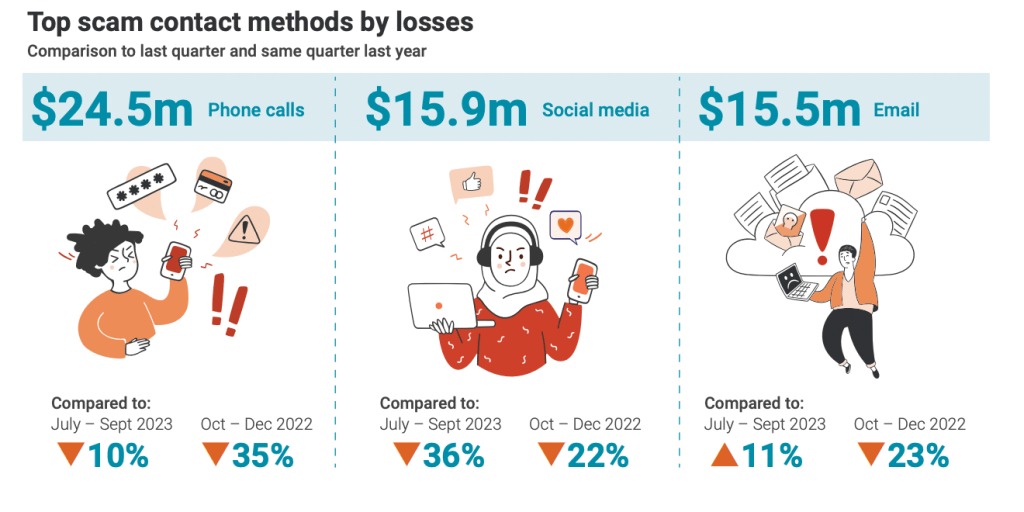Govt warns Meta over online scams
The federal government has a blunt warning for the owner of Facebook and Instagram, telling Meta it is “not above the law” when it comes to spreading online scams and fraud.

Choice says 76 per cent of Australian losses through online scams in 2023 were through Meta’s companies.
Assistant Treasurer Stephen Jones’s message on the sidelines of the inaugural Global Fraud Summit in London comes as Australian consumer group Choice says 76 per cent of losses to scams in 2023 were through Meta’s companies.
A plan to tackle the growing problem of online scams was backed by 11 countries, with Australia joined by Canada, New Zealand, the United States and the United Kingdom, as well as the G7 countries, Singapore and South Korea.
A communiqué setting out a global framework for tackling fraud was signed and comes as Australia’s National Anti-Scam Centre released its second quarterly update.
From October to December of last year, Australians reported $82.1 million in losses to Scamwatch, which was down by 43 per cent compared to the same quarter in 2022.
During that period, Australians lost $15.9 million to scams initiated online.
Nonetheless, the $95 million lost to online scams in 2023 amounted to a 249 per cent increase in reported losses since 2020.

Social media was among the top scam contact methods.
“When people think of crimes they might all go to violent crimes, but fraud is the most prevalent form of crime up here in the UK and down in Australia as well,” Jones told the summit.
“And it just hadn’t been treated as a priority by the law enforcement or governments, and from opposition I looked at this as I was sitting in lockdown like all of us and bombarded by scam messages and emails and phone calls, and thought we’ve got to do better than this,” he said.
Meta in the spotlight
Speaking to reporters after following the summit, Jones had a message to “Meta in particular”: “You’re not above the law.”
He said he was “frankly disappointed” with Meta’s response to the consultation that was held into the codes of practise surrounding online fraud, saying the company’s response was essentially “yes this is a big problem but it’s all too hard, we can’t do anything about it”.
“Give me a break,” Jones said.
“These guys are the biggest technologists in the world, they employ the best information technologists, the best engineers, the best process experts in the world, they are the biggest and the best. Don’t tell me they can’t do more.”
Back in Australia, consumer group Choice has also called for companies like Meta to do more.
Choice senior campaigns and policy advisor Alex Soderlund said that 76 per cent of losses in 2023 were through Meta’s companies.
“We continue to see an overwhelming number of likely scam ads across Meta and Google-owned services,” Soderlund added.
“Big tech companies have a perverse incentive not to act on scams because they generate advertising revenue, so it’s clear that only strong mandatory rules to prevent scams developed and enforced by a regulator will result in any meaningful change for consumers.”
What the world plans to do about fraud online
The framework laid out in the communique had four main pillars, with understanding and the need for transnational cooperation being at the heart of it:
- Build international understanding, partnerships and capabilities
- Better empower the public
- Pursue organised fraudsters acting transnationally
- Prevent the reach and means of fraudsters
The communique promises to co-ordinate an international response so criminals who commit fraud “have nowhere to hide”.
The National Anti-Scam Centre is one way Australia is planning on tackling scams.
Jones said the next phase was to develop mandatory industry codes, imposing “tough new obligations” banks, telcos, and social media platforms so customers are protected from scams.
The federal government is also implementing SMS Sender ID registry, which would prevent scammers from imitating industry or government brand names.
– The New Daily




